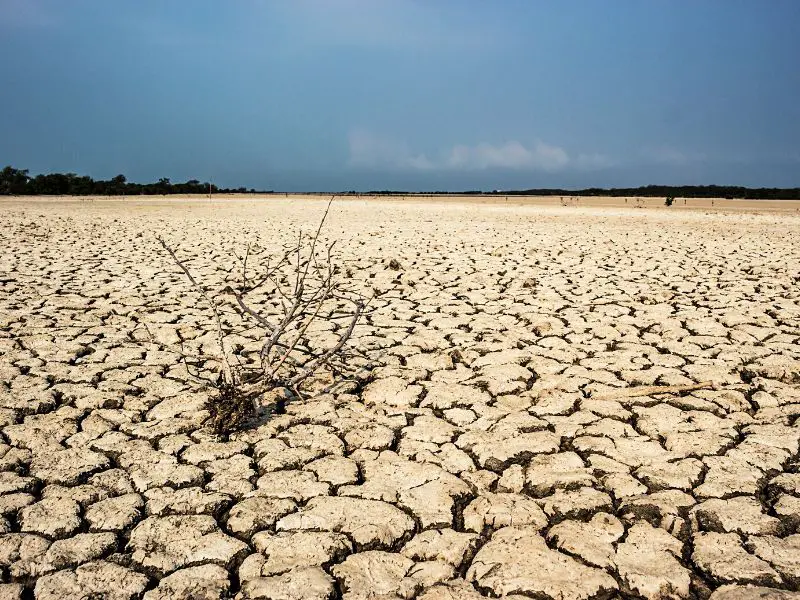Europe’s scorching heatwaves have been wreaking havoc on the continent for the last few years during the summer months, producing deadly wildfires, severe droughts, and hundreds of fatalities.
The EU’s record-breaking temperatures are making headlines throughout the globe, and experts are concerned that these intense heat waves may become the region’s new norm. In this article, we plunge into what you should know about heat waves in Europe.

Things To Know About Heat Waves in Europe
1. Record-Breaking High Temperatures in Europe
Temperatures across Europe have reached all-time highs.
In July 2022, dozens of French towns punched record-breaking temperatures up to 42°C (107.6°F). In the same week, the United Kingdom saw its hottest day on record at 40.3°C (104.5°F), surpassing the 2019 peak of (38.7°C) 101.7°F.
In London, the extreme heat is so unusual that the national train service cautioned the public, encouraging people to remain indoors unless essential. Key train stations were also partially shut down for parts of the day.
2. The Scorching Heat Is Fueling Wildfires

The scorching temperatures are fueling the spread of wildfires throughout the continent. European Forest Fire Information System records show that in 2022, there were an estimated 1,977 wildfires throughout the continent, which is about three times the average.
The Mediterranean region was so affected that thousands of people in Portugal, Spain, and France were forced to flee their homes.
3. Europe Is Feeling a Series of Droughts

In addition to wildfires wreaking havoc, Europe’s heatwave produces a succession of droughts throughout the continent.
Most cities in Europe have at least one river or lake running through them, but these rivers and lakes are in danger of drying up. For example, the drought along Italy’s Po River was so bad that the country’s government declared a state of emergency in five different areas.
4. Green Transition Plans Are on Hold Because of Energy Demands
Europe set big goals to cut its greenhouse gas emissions by 55% by 2030. But because of a global energy crisis, several European countries have put their plans to become more environmentally friendly on hold. Instead, they started using “dirty” fuels again, like coal, to keep their economies operating. This comes at an odd time since the area is burning with record-breaking temperatures that experts think are caused by humans.
The reduced flow of water in many European rivers also affects hydroelectricity and even nuclear power as there isn’t enough water to use for cooling.
On the positive side, Germany has made some headway in the renewable energy domain; in 2022, the nation produced a record-shattering quantity of electricity from solar panels.
5. Climate Change Plays a Huge Part in Europe’s Heat Waves
According to experts, climate warming contributes to these record-breaking heat waves. Since the 1850s, global surface temperatures have increased by around 1.0°C (1.8°F), and experts claim that human activities have driven this increase.
However, there may be more causes contributing to these intense heat waves. While it’s difficult to be precise with the exact estimates, a recent study published in Nature Communications found that Europe’s escalating heatwaves may be partially attributable to shifting air currents blasting hot air from North Africa to Europe.
Europe’s Heat Waves Disaster
In the 3rd quarter of 2022, thousands of people died as 21 European countries faced abnormally high temperatures during an extraordinary, extended, but expected heatwave. Particularly affected were the elderly and those with underlying medical issues, such as respiratory and cardiovascular disorders. According to data from Spain and Portugal, most individuals who died were above 65 years old.

Earlier statistics also indicate that elderly individuals are disproportionately affected by heat waves. In 2021, 90% of heat-related fatalities in the United Kingdom were among those aged 65 and older. In 2003, when France experienced its worst heatwave, most of the 15,000 people who perished were elderly.
At least 1,500 people have died as a result of this record-breaking heatwave. And we know for sure that persons with impairments or pre-existing illnesses that impede the body’s capacity to regulate temperatures, such as diabetes, spinal cord, traumatic brain injuries, and cerebral palsy, are more susceptible to the effects of heat. Psychosocial disorders (mental health issues) triple the risk of dying from heat, in part because some drugs impair the body’s capacity to regulate temperature.
How to Respond to Heat Waves
The WHO recommendations and heat–health action plans give practical advice to the general public on how to react to heatwaves, especially for those caring for patients in hospitals and other care facilities, including nursing homes for the elderly.
Here are some simple precautions that anyone should take to protect themselves and their loved ones from the dangers of a heat wave.
- Stay indoors as much as possible, even at night, and avoid doing anything that might cause you to sweat a lot, such as engaging in excessive physical activity. You should also ensure not to leave your children or pets in a parked car.
- Drink plenty of water to keep your body hydrated and cool. Wear lightweight, loose-fitting clothes; take frequent, cold showers or baths; avoid alcoholic, caffeinated, and sugary beverages. If it permits, spend at least a few (2-3) hours each day in a cool location.
- Make sure that your house is as cool as it may be. Take advantage of the cooler air at night to help cool down your home, and use shades or shutters to help minimize the amount of heat that enters your apartment or house during the day.
- Consult a medical professional if you have a severe condition or are taking several drugs. Move to a cooler location if you feel dizzy, weak, worried, or have excessive thirst and a headache.
- Check on relatives and friends, mainly elderly persons living alone.
Bottom Line
As the continent with the world’s oldest median age, Europe is especially vulnerable to the detrimental impacts of severe weather, especially as most European houses are not adequately built for very high temperatures.
The harsh weather is affecting people’s ability to make a living. High temperatures are drying out the soil, making growth conditions bad for the region’s biggest agricultural producers, including France, Romania, and Spain.
In a nutshell, this heatwave has been particularly severe in Europe. The prolonged heat wave has brought health risks, deaths, and fires to the country, devastating the continent’s economy, infrastructure, and people.
Best Eco Advice You Should Know: How Can We Be More Eco Friendly, Famous Climate Change Scientists, Things You Can Do to Save the Planet

